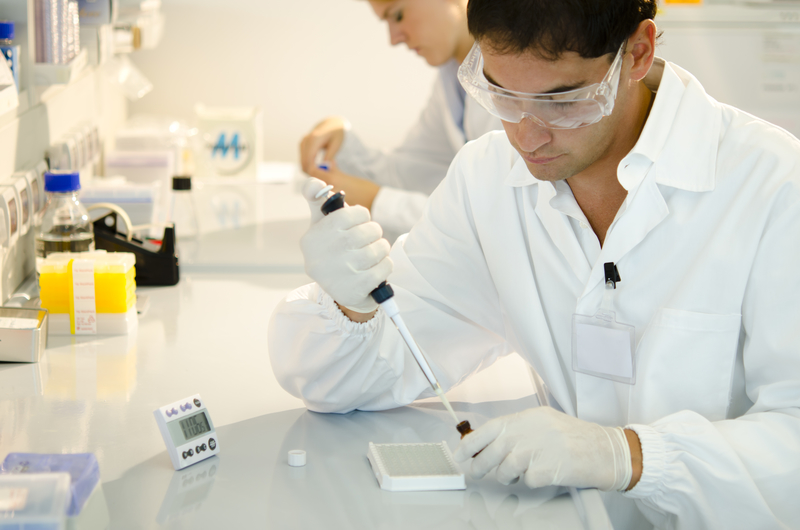The history of the Kiwanis Doernbecher Children’s Cancer Program is filled with a rich history of volunteers and contributors with a compassion, generosity and commitment to Doernbecher Children’s Hospital, its staff, and especially the children who are treated there.

The history of the Kiwanis Doernbecher Children’s Cancer Program is filled with a rich history of volunteers and contributors with a compassion, generosity and commitment to Doernbecher Children’s Hospital, its staff, and especially the children who are treated there.
In 1985, Kiwanis International became a sponsor of the Children’s Miracle Network Telethon. Kiwanis Pacific Northwest Governor Gene O’Brien appointed Huby Newton as the first Children’s Miracle Network (CMN) Chair to coordinate fund raising and other activities.
The first fund raising project was the coin campaign, begun in 1986. Clubs collected quarters in pop cans. An event was held in Pioneer Court House Square (during the CMN Telethon) where Kiwanians filled a map of the State of Oregon with the canisters. About $12,000 was raised, which funded the purchase of two neonatal transport isolettes to bring seriously ill newborns by helicopter from their home hospitals to Doernbecher.
We forged a partnership with the Doernbecher Children’s Hospital Foundation (DCHR) early on. The first direct meeting was a lunch with Kiwanians Gene O’Brien and Huby Newton and DCHF liaison staff members Margie Lyman, Sally Evans and Lyn Trainer in January 1986. This was the first face-to-face meeting between Kiwanians and DCHF staff. We have worked over the years to assist with Telethons, Radiothons and other DCHF fund raising projects to benefit the Hospital.
This strong and valuable partnership continues today.
In 1987, a small group of Kiwanians met with Dr. Robert Neerhout M.D. (Doernbecher Children’s Hospital Physician-In-Chief at the time) and discussed the need for a Bone Marrow Transplant Unit (BMTU) at Doernbecher. Kiwanians were asked to conduct a capital campaign to build a bone marrow transplant unit at Doernbecher so children would no longer have to travel to Seattle or San Francisco for this lifesaving treatment. It was agreed that a partnership would benefit the need greatly and the Kiwanis Bone Marrow Transplant Program was born. A three-year fund raising campaign was created to raise the $175,000 needed to build the unit.
After the BMTU opened in 1991, Kiwanians raised and provided on-going funding to recruit Dr. Ted Moore, the unit’s first transplant specialist, and support the unit until the new Doernbecher Hospital opened in 1997. At that time, the air filtration system in the hematology/oncology unit was designed to accommodate transplant patients and the BMTU was folded into the oncology unit.
As the years passed, the Bone Marrow Transplant Program became self sustaining in the Hospital and with the bone marrow transplant program secure, a new direction of fundraising was sought by the Kiwanians and the Hospital.
From 1994 to 1997 , with the planning of a new Doernbecher Childrens Hospital underway, the fund raising focus shifted to assist with the construction costs of the new Hospital. Over $60 million was raised overall for the new hospital in that time with KDCCP Kiwanians heavily involved and participating in fundraising for the new Hospital state -of-the-art building.
When the new Hospital opened in 1997, F. Leonard Johnson,M.D., division chief of pediatric hematology/oncology, asked Kiwanians to form a partnership to establish and support a fellowship program to train the next generation of children’s cancer doctors and researchers. Like the BMTU, the fellowship program would help Doernbecher advance to one of the leading children’s hospitals in the country. The Kiwanis Bone Marrow Transplant Program became the Kiwanis Doernbecher Children’s Cancer Program, KDCCP.
Over the past 20 years, KDCCP support has trained more than 30 pediatric cancer specialists who are now conducting research and caring for children in communities across the country. Several continue to work locally at Doernbecher Children’s Hospital and Randall Children’s Hospital at Emanual. Having a fellowship program was also a criteria for becoming one of only 21 medical centers in the U.S. that conduct the first clinical trials for new treatments and therapies.
We were recognized for our contributions when patient rooms with the special filtration systems in the oncology unit were named in honor of our fund raising efforts. An honor that is still in place today.
In 1998, as technologies changed, we needed to change as well. That year we became the Kiwanis Doernbecher Children’s Cancer Program (KDCCP).
Also in 1998, we re-evaluated our mission and determined that it was our priority to help cure children with cancer and blood disorders (in all forms). With the opening of the new hospital, the next goal for Doernbecher’s cancer program was to establish a fellowship program to train the next generation of children’s cancer specialists. Dr. Len Johnson, division chief of hematology/oncology, explained now that we had a 21st century facility, we needed to invest in the minds that would find cures for cancer and improve treatments and outcomes for children. The Kiwanis Doernbecher Children’s Cancer Program was born with a commitment of $100,000/year to sponsor two first year fellowships. Ashley Speckhart was the first Kiwanis Fellow. Dr. Speckhart completed her 3-year fellowship in 2003. Since that time 40 Fellows have graduated from the Program.
So began the Kiwanis Doernbecher Childrens Cancer Program Fellowship Program.
KDCCP is a non-profit corporation. Our volunteer Board of Directors represent communities in Oregon and southern Washington. We are fortunate to have Board members who are Kiwanians and fortunate to have those who are not. Together we strive for the common goal of eradicating cancer in children by contributing funds to Doernbecher Children’s Hospital so that Physicians and Researchers have the funding they need to accomplish this goal. Our fundraising efforts provide the funding for the best and the brightest young Physicians to participate in this intensive three year program to become the next generation of pediatric hematology/oncology specialists.
Two Physicians are selected annually during a very competitive recruitment process. The Physicians who do apply have completed their medical school and residency, are licensed and could go on to practice in a private or hospital setting. Rather they have chosen to further their education and desire to learn how to care for children with cancer and blood disorders.
Once selected, the new Fellows spend their first year completing clinical training. That is, working with established attending Physicians learning how to care for children with various types and stages of cancers and blood disorders. Their second and third years of their Fellowship are spent in the Labratory performing cutting edge and life changing research for the treatment and prevention of childhood and young adult cancers and blood disorders.
KDCCP raises funds annually by selling raffle tickets for travel adventures; we offer an on-line auction; holiday ornaments are available for a donation; we support fundraisers held on our behalf and we gratefully receive generous donations from Corporations, Businesses, Kiwanis Clubs, Foundations and Individuals.
As of July 1, 2022, KDCCP has surpassed $4,500,000 in support of Doernbecher Children’s Hospital.
The Future of KDCCP
This is only the beginning. In the past 20 years, KDCCP has been instrumental in the training of more than 40 fellows. KDCCP fellows are impacting the lives of young cancer patients in Oregon, southern Washington and across the country with their care and research efforts.
We will not stop supporting this fellowship program until cancer in children is eradicated. Until then, we are committed to continue our support to the fellows of the Hematology/Oncology Department at Doernbecher Children’s Hospital.
Kiwanis Doernbecher
Children's Cancer Program
13160 SE 172nd Ave, #230
Happy Valley, OR 97086
© 2023 Kiwanis Doernbecher Children’s Cancer Program.
As a registered 501(c)(3) non-profit organization, contributions to Kiwanis Doernbecher Children’s Cancer Program are tax-deductible to the extent permitted by law.

